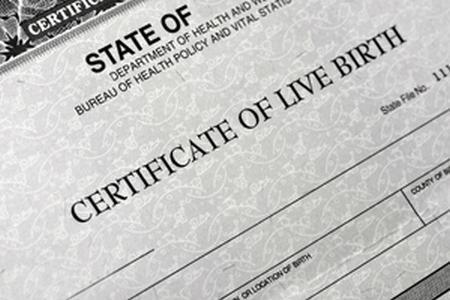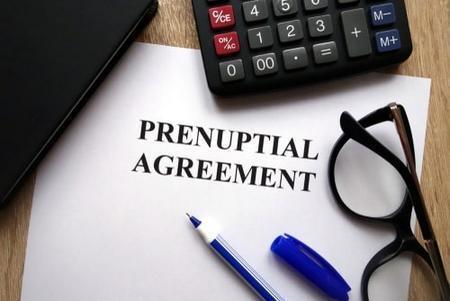Recent Blog Posts
5 Signs Your Spouse is Hiding Assets in Your Kane County Divorce
 Marriage is about much more than money. However, managing financial issues is often a huge aspect of the marital relationship. Consequently, finances are also a massive consideration in a divorce case. In Illinois, divorcing spouses are required to disclose all assets and income. Unfortunately, many spouses try to gain an unfair advantage by hiding assets. Read on to learn about some of the red flags of hidden assets in divorce and what you should do if you suspect your spouse is lying about property or money in your divorce.
Marriage is about much more than money. However, managing financial issues is often a huge aspect of the marital relationship. Consequently, finances are also a massive consideration in a divorce case. In Illinois, divorcing spouses are required to disclose all assets and income. Unfortunately, many spouses try to gain an unfair advantage by hiding assets. Read on to learn about some of the red flags of hidden assets in divorce and what you should do if you suspect your spouse is lying about property or money in your divorce.
Your Spouse Keeps You in the Dark About Finances
In many marriages, one spouse handles financial issues like investments and paying the bills while the other spouse handles other concerns. Unfortunately, this division of labor can backfire during divorce. If your spouse hides financial documents, changes passwords on online bank accounts, or intentionally keeps you in the dark about finances, this may be a sign he or she is hiding something.
When Are Restrictions on Parenting Time Appropriate?
 When a child’s parents are no longer in a relationship with each other, including when married parents get divorced or when unmarried parents have broken up, both parents will often wish to maintain a close relationship with the child. In many cases, parents will share in the allocation of parental responsibilities (commonly known as legal custody), and each parent will have regular parenting time (sometimes referred to as visitation). However, there may be some situations where one parent believes that it would be best for a child not to have a relationship with the other parent. In these cases, parents will need to understand how the law addresses restrictions on parenting time. When addressing these matters in court, a parent will need to show why their wishes regarding parenting time would be in their child’s best interests.
When a child’s parents are no longer in a relationship with each other, including when married parents get divorced or when unmarried parents have broken up, both parents will often wish to maintain a close relationship with the child. In many cases, parents will share in the allocation of parental responsibilities (commonly known as legal custody), and each parent will have regular parenting time (sometimes referred to as visitation). However, there may be some situations where one parent believes that it would be best for a child not to have a relationship with the other parent. In these cases, parents will need to understand how the law addresses restrictions on parenting time. When addressing these matters in court, a parent will need to show why their wishes regarding parenting time would be in their child’s best interests.
3 New Year’s Resolutions to Consider During or After Your Divorce
 For many people, the beginning of a new year presents an opportunity to make positive changes in their lives. While new year’s resolutions do not always last more than a few months, they can help you take stock of your life, identify potential areas of improvement, and begin taking steps toward a more positive future. For those who are going through a divorce or who have recently ended their marriage, resolutions can be especially beneficial. A divorce will require you to make major changes, and the new year can be a good opportunity to take a positive approach to these changes and determine the best ways to move forward into the next phase of your life.
For many people, the beginning of a new year presents an opportunity to make positive changes in their lives. While new year’s resolutions do not always last more than a few months, they can help you take stock of your life, identify potential areas of improvement, and begin taking steps toward a more positive future. For those who are going through a divorce or who have recently ended their marriage, resolutions can be especially beneficial. A divorce will require you to make major changes, and the new year can be a good opportunity to take a positive approach to these changes and determine the best ways to move forward into the next phase of your life.
Resolutions That Can Benefit You Following Your Divorce
While everybody’s situation is different, there are some common factors to every divorce. After being used to sharing your life with a partner, you will need to get used to living on your own. Some new year’s resolutions that may benefit you as you reorient your life include:
How Is Commingled Property Addressed in an Illinois Divorce?
 When a couple chooses to end their marriage, they will need to address a variety of issues during the divorce process. Foremost among these is the division of marital property. All assets and debts that a couple owns together must be divided fairly and equitably. In addition to marital property, each spouse will likely have certain assets that are considered separate property, including items they owned before getting married, assets received through inheritances, and property excluded from the marital estate by a prenuptial or postnuptial agreement. Separate property will not be divided between spouses, and each party will be able to retain ownership of the assets they originally possessed. However, there are many situations where marital and separate property may become mixed together or “commingled.” By understanding how to identify marital and separate property and determine how ownership of commingled property will be handled, spouses can ensure that property division will be addressed correctly during their divorce.
When a couple chooses to end their marriage, they will need to address a variety of issues during the divorce process. Foremost among these is the division of marital property. All assets and debts that a couple owns together must be divided fairly and equitably. In addition to marital property, each spouse will likely have certain assets that are considered separate property, including items they owned before getting married, assets received through inheritances, and property excluded from the marital estate by a prenuptial or postnuptial agreement. Separate property will not be divided between spouses, and each party will be able to retain ownership of the assets they originally possessed. However, there are many situations where marital and separate property may become mixed together or “commingled.” By understanding how to identify marital and separate property and determine how ownership of commingled property will be handled, spouses can ensure that property division will be addressed correctly during their divorce.
What You Need to Know About Voluntarily Acknowledging Paternity
 When a child’s parents are married, there is usually no question about the identity of the child’s father, and both parents will have the legal rights and obligations that come with parenthood. However, when a child is born to unmarried parents, additional steps will need to be taken to legally establish paternity. In many cases, this is done by signing a Voluntary Acknowledgment of Paternity (VAP) form. When doing so, parents will need to understand their rights and requirements, and they may also need to address other related legal issues.
When a child’s parents are married, there is usually no question about the identity of the child’s father, and both parents will have the legal rights and obligations that come with parenthood. However, when a child is born to unmarried parents, additional steps will need to be taken to legally establish paternity. In many cases, this is done by signing a Voluntary Acknowledgment of Paternity (VAP) form. When doing so, parents will need to understand their rights and requirements, and they may also need to address other related legal issues.
Issues That May Affect a Voluntary Acknowledgment of Paternity
Until paternity is established, a father may not be recognized as a child’s legal parent. If the parents are in agreement that a man is the child’s biological father, they can sign and submit a VAP form together. This form may be provided at the hospital where a child is born, but it is also available from other state and local government offices, such as a county clerk, and it may be signed at any time after a child is born. After a father is recognized as a legal parent, he will have the right to share in child custody and parenting time, and he will have an obligation to provide child support.
Can a Prenuptial Agreement Be Invalidated Because of Unfairness?
 For many married couples, a prenuptial agreement can provide a sense of security, ensuring that they will be able to avoid uncertainty and minimize conflict in the case of a divorce. By using a prenup to make decisions about issues such as property division and spousal maintenance ahead of time, spouses can protect their financial interests and make sure they will each be able to move forward successfully following the end of their relationship. However, there are some cases where a prenuptial agreement may be challenged by one party. While these challenges may be based on a variety of factors, one common reason a spouse may believe that a prenup should not be enforced is that it is unfair. By understanding when this type of challenge may be made, spouses can determine the best ways to approach these situations.
For many married couples, a prenuptial agreement can provide a sense of security, ensuring that they will be able to avoid uncertainty and minimize conflict in the case of a divorce. By using a prenup to make decisions about issues such as property division and spousal maintenance ahead of time, spouses can protect their financial interests and make sure they will each be able to move forward successfully following the end of their relationship. However, there are some cases where a prenuptial agreement may be challenged by one party. While these challenges may be based on a variety of factors, one common reason a spouse may believe that a prenup should not be enforced is that it is unfair. By understanding when this type of challenge may be made, spouses can determine the best ways to approach these situations.
5 Tips for Divorced or Divorcing Parents During the Holidays
 The holiday season can be stressful for anyone. Buying gifts for loved ones and coordinating holiday celebrations and family get-togethers can take up a great deal of time and energy. These issues can be even more difficult to deal with for those who have recently ended their marriage or are in the midst of the divorce process. If you are a divorced or unmarried parent who shares custody of your children, you may need to make major changes to your normal holiday plans, and both you and your children may experience emotional struggles as you adjust to new arrangements. Fortunately, there are some positive steps that you can take to make sure you will be able to enjoy the holidays with your children. These include:
The holiday season can be stressful for anyone. Buying gifts for loved ones and coordinating holiday celebrations and family get-togethers can take up a great deal of time and energy. These issues can be even more difficult to deal with for those who have recently ended their marriage or are in the midst of the divorce process. If you are a divorced or unmarried parent who shares custody of your children, you may need to make major changes to your normal holiday plans, and both you and your children may experience emotional struggles as you adjust to new arrangements. Fortunately, there are some positive steps that you can take to make sure you will be able to enjoy the holidays with your children. These include:
-
Set expectations - It is important to make sure everyone understands the holiday parenting time schedule well in advance. You can communicate with the other parent to determine when children will be staying with each of you and when children will be picked up or dropped off, while also addressing any other issues related to the time children will spend in each of your homes during their winter break from school. You will also want to discuss these plans with your children and answer any questions they may have about the holiday schedule or other related concerns.
How Is Child Support Calculated When Parents Have 50/50 Custody?
 Parents have the obligation to provide financial support for their children. To ensure that children will have the resources that will fully address their ongoing needs, child support will usually be ordered in cases where married parents choose to divorce or when unmarried parents are separated. In many of these cases, one parent will have primary physical custody, meaning that children will live with them the majority of the time, and this parent will usually receive child support payments from the other parent. However, there are some situations where parents may have equal or 50/50 custody, and determining the parents’ child support obligations in these cases can be more complex.
Parents have the obligation to provide financial support for their children. To ensure that children will have the resources that will fully address their ongoing needs, child support will usually be ordered in cases where married parents choose to divorce or when unmarried parents are separated. In many of these cases, one parent will have primary physical custody, meaning that children will live with them the majority of the time, and this parent will usually receive child support payments from the other parent. However, there are some situations where parents may have equal or 50/50 custody, and determining the parents’ child support obligations in these cases can be more complex.
Child Support and Shared Physical Care
In Illinois, child support obligations are calculated by taking the income earned by both parents into account. These obligations are determined by considering the amount that married parents would usually be expected to spend on child-related expenses. The state of Illinois uses tables that detail the appropriate amount of support based on parents’ combined income and their number of children.
When Are Psychological Evaluations Used in Illinois Family Law Cases?
 There are multiple situations where family members may need to address legal issues. These disputes can become very contentious, especially when parents or other parties disagree about what is best for children. In some cases, divorcing spouses, parents who need to address issues related to child custody, or other family members involved in children’s lives may become concerned about children’s safety, physical and mental health, and overall well-being. To ensure that children will be protected from harm or to address other concerns about the safety of family members, psychological evaluations may be performed.
There are multiple situations where family members may need to address legal issues. These disputes can become very contentious, especially when parents or other parties disagree about what is best for children. In some cases, divorcing spouses, parents who need to address issues related to child custody, or other family members involved in children’s lives may become concerned about children’s safety, physical and mental health, and overall well-being. To ensure that children will be protected from harm or to address other concerns about the safety of family members, psychological evaluations may be performed.
Reasons for a Psychological Evaluation
In family law cases involving children, the court’s primary focus will be to protect children’s best interests. While parents are generally presumed to be fit to care for their children, there are some situations where a parent or other family members may be concerned that children will be at risk of physical or emotional harm when in a parent’s care. One or more parties involved in a case may request a psychological evaluation of either or both parents, and children may also be evaluated to gain a better understanding of their relationships with their parents and any issues that may affect their well-being. A judge may also order psychological evaluations if they believe that they need additional information to help them make decisions about child custody.
4 Ways to Prepare for a Divorce in Illinois
 The decision to pursue a divorce is usually not an easy one. However, if your relationship with your spouse has broken down, ending your marriage may be the best option for you, your children, and your family. Rather than living in a tension-filled home and dealing with the stress of regular arguments or disagreements over finances and child-related issues, you can make plans to leave this situation and live a happier, more fulfilling life. As you get ready to end your marriage, you can make the process easier by taking steps to prepare for the divorce process and ensure that you will be ready to address the legal and financial issues involved in ending your marriage.
The decision to pursue a divorce is usually not an easy one. However, if your relationship with your spouse has broken down, ending your marriage may be the best option for you, your children, and your family. Rather than living in a tension-filled home and dealing with the stress of regular arguments or disagreements over finances and child-related issues, you can make plans to leave this situation and live a happier, more fulfilling life. As you get ready to end your marriage, you can make the process easier by taking steps to prepare for the divorce process and ensure that you will be ready to address the legal and financial issues involved in ending your marriage.
1. Start Saving Money
Your divorce itself will involve a number of expenses, including legal fees, court costs, and money that will be paid to the attorney you hire to represent you. As you prepare to make changes to your living arrangements, you may also encounter a variety of other expenses. You may need to address moving costs and put money toward rent or mortgage payments, utilities, purchasing new furniture or appliances, and other household expenses. To ensure that you will have the financial resources you need, you can begin saving money ahead of time. However, it is important to understand that the money you save will be considered marital property, and you may be required to divide these funds with your spouse along with other assets that the two of you own together.












